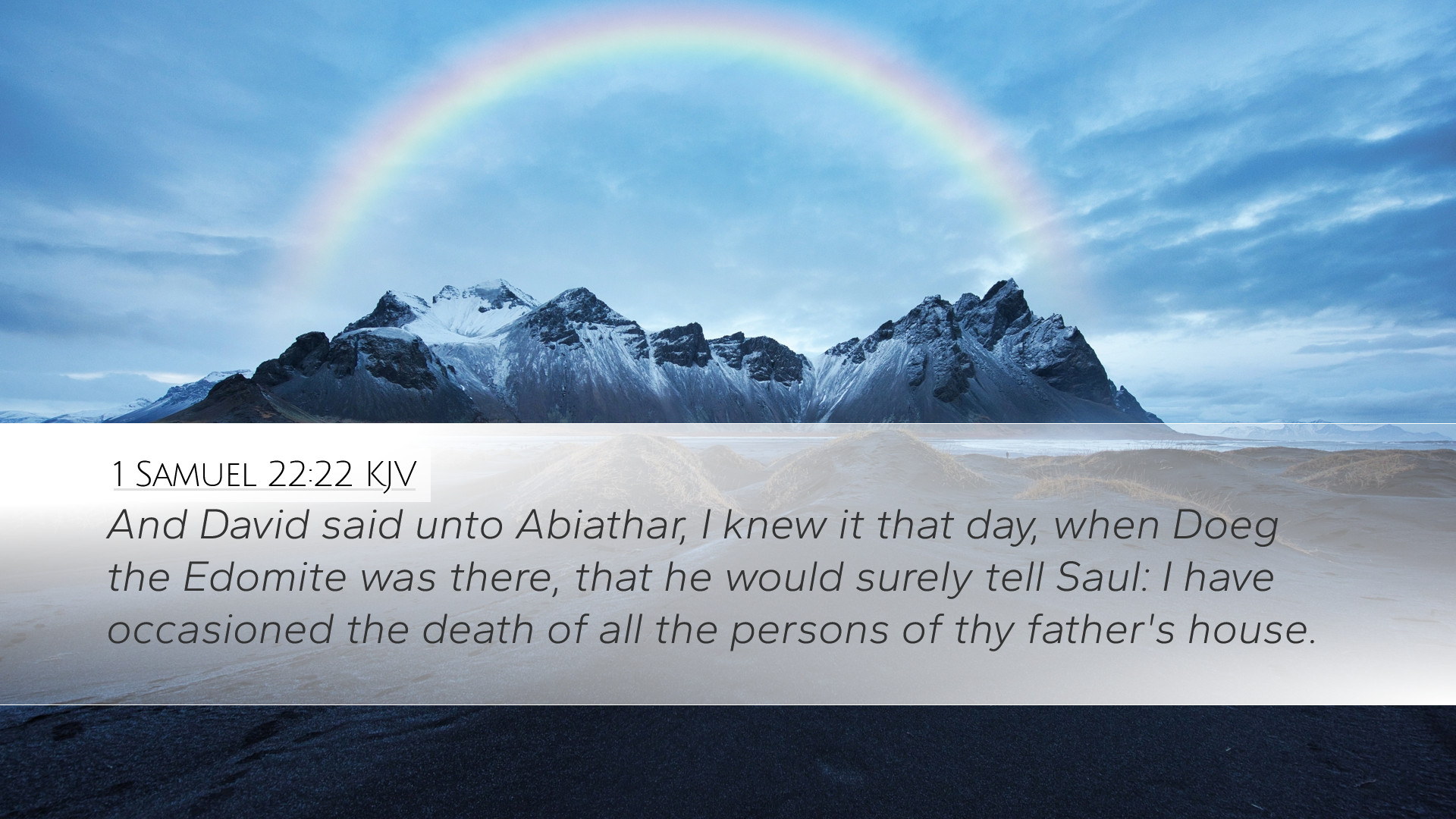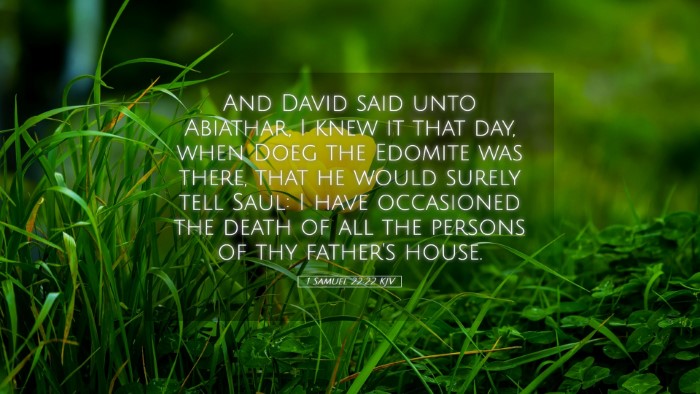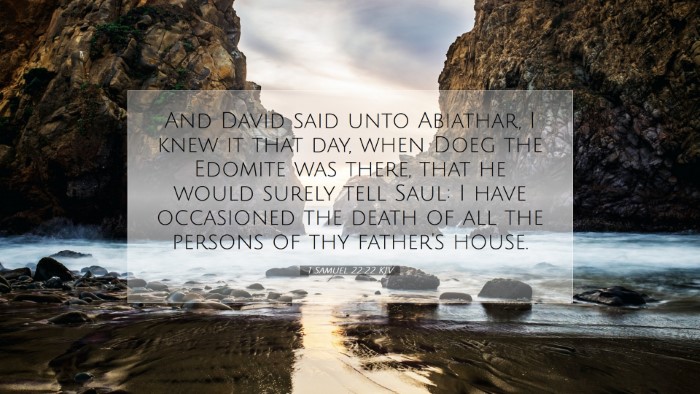Commentary on 1 Samuel 22:22
Verse: "And David said unto Abiathar, I knew it that day, when Doeg the Edomite was there, that he would surely tell Saul: I have occasioned the death of all the persons of thy father's house." (1 Samuel 22:22, KJV)
Contextual Overview
This verse occurs in a significant moment in the narrative of David's life, following his escape from Saul’s court and the tragic massacre at Nob, where Doeg the Edomite reported to Saul about David's visit. The context is crucial for understanding David's acknowledgment of the consequences that stemmed from his actions and his awareness of the ramifications of the betrayal of trust.
Insights from Public Domain Commentaries
Matthew Henry’s Commentary
Henry posits that David's confession to Abiathar is marked by a profound sense of grief and responsibility. He acknowledges that his presence and actions led directly to the peril faced by the priests of Nob, culminating in their slaughter at the behest of Saul. David's lamentation reveals a burden of guilt that he carries for the lives that were lost due to his circumstantial decisions. Henry emphasizes that this moment highlights David's understanding of the greater spiritual implications of his choices, illustrating his emerging character as a reflective leader.
Albert Barnes’ Commentary
Barnes provides a critical perspective on the nature of David’s leadership during this tumultuous time. He notes that David’s admission serves as a turning point, illustrating his growing conscience and moral sensibility. He reflects upon the severity of David’s miscalculation that resulted in the deaths of Abiathar's family. Barnes suggests that this moment not only showcases David’s regret but also sets the stage for his future reliance on God’s providence and mercy. David’s recognition of Doeg’s treachery serves as a lesson on vigilance and humility, particularly regarding the weighty responsibilities that come with leadership.
Adam Clarke’s Commentary
Clarke emphasizes David’s emotional state and the implications of his phrasing when he states, “I have occasioned the death.” This acknowledgment of guilt denotes a personal responsibility that David wrestles with deeply. Clarke elaborates on the character of Doeg the Edomite, marking him as a treacherous figure driven by malice and ambition. David’s horror at the repercussions of Doeg’s disclosure reflects a critical awareness of moral accountability, and Clarke draws parallels to the Christian experience of considering the impact of one’s actions on others. This resonates with the importance of living with a clear conscience in the sight of God and man.
Exegesis and Theological Reflections
From a theological standpoint, David’s admission can be linked to the overarching themes of sin, responsibility, and divine providence observed throughout the biblical narrative. His lament reflects the biblical principle found in Galatians 6:7, where one reaps what one sows. It offers profound reflections for pastors and theologians regarding the nature of sin and the importance of acknowledging our role in the suffering of others.
Furthermore, David’s awareness of the potential for betrayal within the close circles surrounding governance generates fruitful discussions on trust and integrity in leadership. His story serves as a poignant reminder of the need for leaders to be attuned to their moral compass and the consequences of their actions, especially in a community-focused context.
Practical Applications
For pastors and students navigating the complexities of ministry, David’s situation illustrates vital applications:
- The Weight of Leadership: Acknowledge that every decision carries weight, and strive for transparency and righteousness.
- Dealing with Guilt: Understand that acknowledging mistakes is critical for spiritual health and restoration. Confession and repentance pave the way for healing.
- Consequences of Actions: Consider the broader impact of personal actions and decisions, stressing the importance of moral integrity in public and private life.
- Divine Providence: Trust in God’s ultimate plan even amid distressing circumstances, embodying faith in our leadership roles.
Conclusion
1 Samuel 22:22 stands as a powerful testimony to the intricacies of human leadership, the weight of personal responsibility, and the grace that can be found in confession and repentance. The insights from the commentaries of Henry, Barnes, and Clarke provide timeless wisdom that continues to resonate with the ecclesial community today. By engaging with these reflections, pastors, students, and scholars are encouraged to navigate their own responsibilities with a heart attuned to both God’s will and the collective well-being of their communities.


